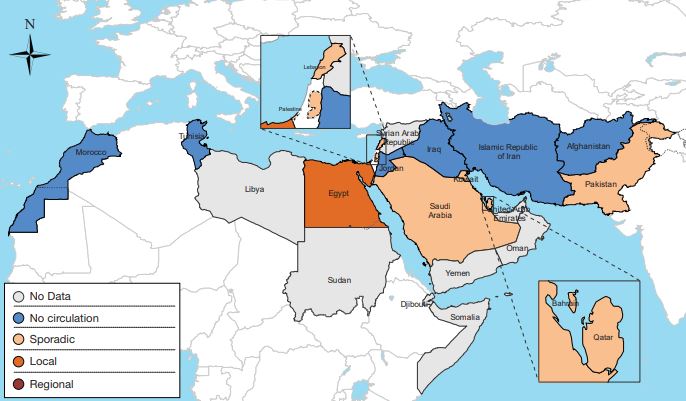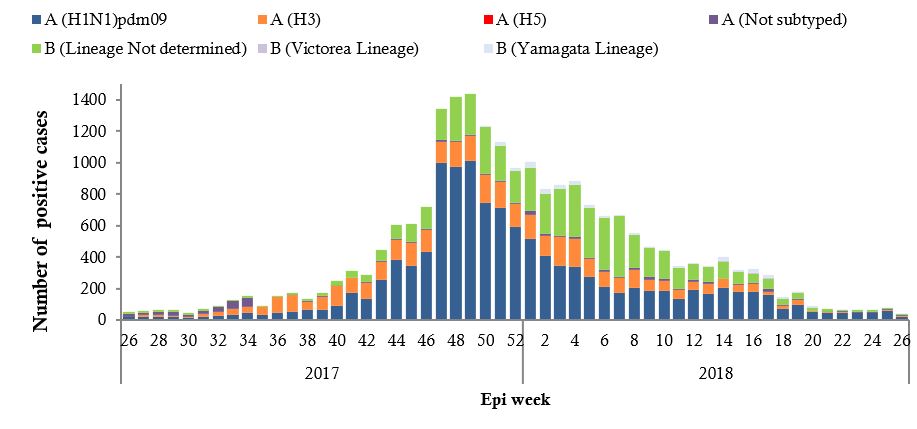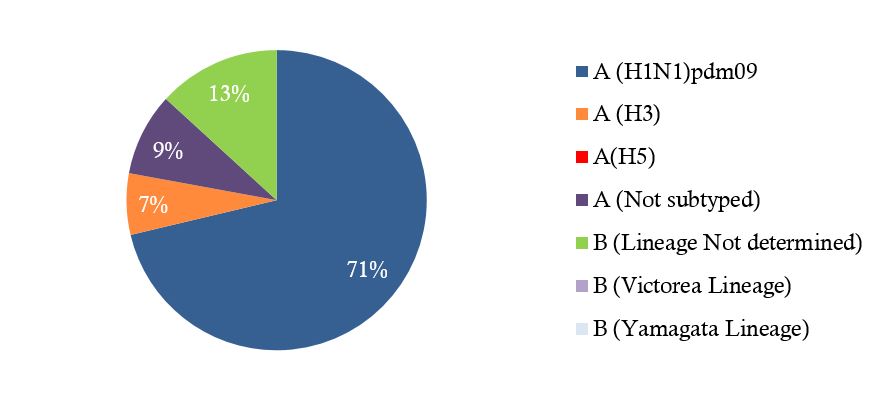In the WHO Eastern Mediterranean Region, influenza activity continues to decrease in the month of June in many countries reporting data to FluNet and EMFLU namely, Afghanistan, Bahrain, Egypt, Islamic Republic of Iran, Iraq, Jordan, Kuwait, Lebanon, Morocco, occupied Palestinian territory, Pakistan, Qatar, Saudi Arabia, and Tunisia (Fig 1).

Fig 1. Influenza geographic spread in the Eastern Mediterranean Region, June 2018
Influenza activity by sub-type
In June 2018, no new cases of human influenza A(H5N1) were reported in Egypt. In the northern Africa influenza transmission zone, Egypt reported sporadic co-circulation of all seasonal influenza viruses; while Morocco and Tunisia reported no activity. In the Western Asia influenza transmission zone, influenza A(H1N1)pdm09 was detected with influenza B virus in Bahrain. Kuwait, Lebanon and oPt reported circulation of influenza A(H1N1)pdm09 and influenza B; while Qatar and Saudi Arabia reported co-circulation of all seasonal influenza viruses. In southern Asia transmission zone, Afghanistan and Islamic Republic of Iran reported no influenza circulation; Pakistan reported sporadic circulation of influenza B.
Fig 2 shows the weekly distribution of influenza subtypes.

Fig 2. Weekly positive cases of influenza by subtype, Epi week 26/2017–2018
Circulating influenza viruses by subtype
During June 2018, national influenza centres and influenza laboratories in the Region tested a total of 4117 specimens for influenza viruses of which 303 tested positive (7%). The average percentage of positivity rates is 5%, with highest positivity rate recorded in Qatar. Of the viruses tested; 263 (87%) were influenza A viruses, including 216 (71%) influenza A(H1N1)pdm09 virus and 20 (7%) were influenza A(H3) virus. Influenza B (Lineage Not determined) virus accounted for 40 (13%) (Fig3).

Fig 3. Circulating influenza viruses in the Region by subtype, Epi week 22-26, 2018
Related report
Influenza monthly update, June 2018


